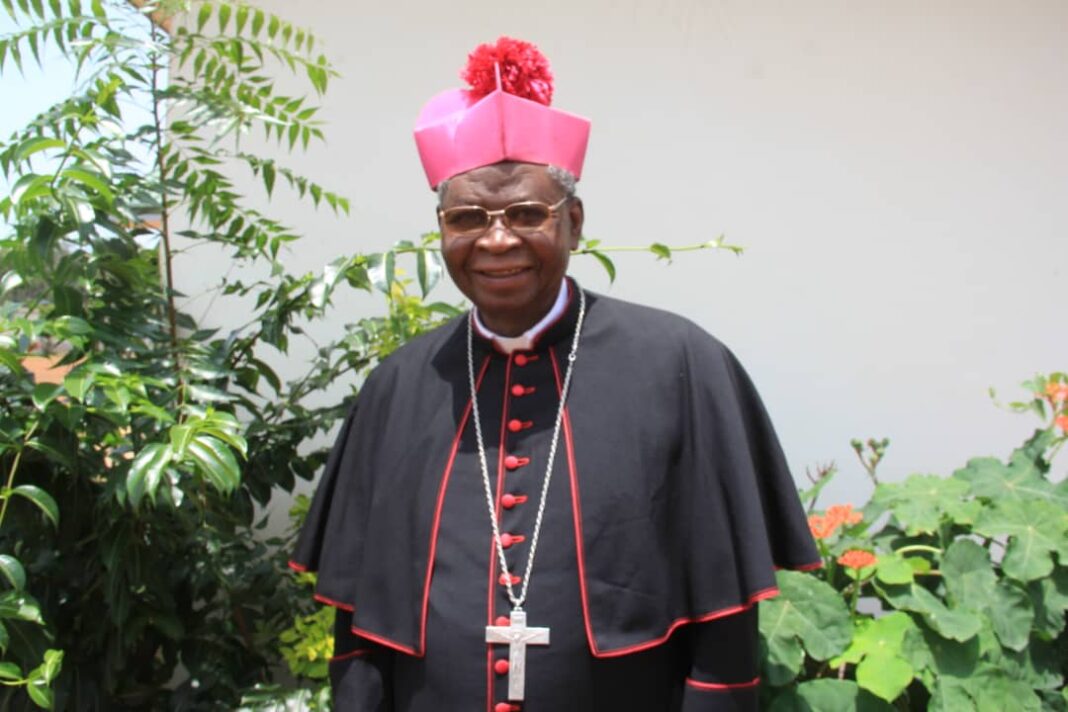Amid the many challenges facing Ghana in the fight against the novel coronavirus pandemic, the head of the Ghana Catholic Bishops’ Conference has recommended to Government to take practical steps to help mitigate the impact of the Covid-19 Pandemic especially by initiating policies that would lead to the creation of sustainable jobs for the teeming youth of our nation.
The Most Rev. Philip Naameh, President of the Conference who made the recommendation in a keynote address in Wa on November 8, 2021, also called for the initiation of open and honest dialogue between Government and all stakeholders to address difficulties that had arisen in the Education and Health sectors due to the Covid-19 Pandemic.
As the novel coronavirus has exposed the systemic weaknesses in the structure and the organisation of the Church’s pastoral initiatives in Ghana, Archbishop Naameh, recommended to the Church at all levels to vigorously embrace the use of the traditional and social media as a vehicle for evangelisation.
Archbishop Naameh who is the Local Ordinary of tamale Archdiocese proposed the initiation of a deliberate and organized programme to educate young people on the proper use of the internet and social media, emphasising its opportunities and exposing its dangers.
“Parishes and schools should be made practical centers for teaching the ecological Gospel, with best practices adapted and implemented in these places,” he suggested.
“It is our hope that by adopting the above and other similar measures, our country will soon reverse the adverse impact of the Covid-19 Pandemic and that the Church in Ghana, will continue, under the guidance of the Holy Spirit to renew this nation with the message of the Gospel and the spirit of fraternal charity,” the GCBC President averred.
Concluding, he appealed to Ghanaians to support the Promotion of Proper Human Sexual Rights and Ghanaian Family Values Bill of 2021 so that it can be passed into Law.

In December 2019, the first cases of current COVID-19 pandemic were reported in Wuhan City in China. The disease was determined by virologists to have been caused by a coronavirus named SARSCoV-2 one of a large family of viruses commonly responsible for respiratory diseases such as the common cold in humans.
The World Health Organisation declared the disease a Public Health Emergency of International Concern 30 January 30, 2020 and subsequently a pandemic on 11 March 2020.
Since then, close to 200 million cases of the disease have been reported worldwide, with over 5 million deaths recorded. Beyond mortalities, the impact of the pandemic has been wide sweeping, affecting the global and local economies, leading to job losses, and affecting livelihoods. Education has been badly affected with lockdowns and other preventive measures disrupting school calendars, while religious worship has sometimes had to be restricted sometimes to online participation or suspended altogether.
In Ghana, the first two cases of the disease were reported on March 12, 2020. Since then, an estimated number of 130,000 cases were confirmed and 1,188 mortalities. The initial response by Government to contain the spread of the disease by imposing a three-week lock down in April 2020 brought in its wake expected consequences for an already struggling economy.
It is estimated that 3.8 million Ghanaians fell through the poverty net, even if temporarily.



